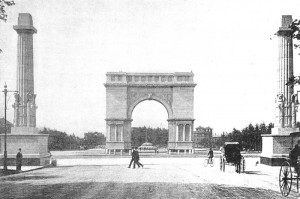Hi Class,
1. What is a photograph?
2. Why do we take, keep, share, and discard photographs?
3. How should we make sense of photographs?
The French sociologist and critic Roland Barthes wrote about photography, and he came up with several useful terms for studying photographs.
1. Studium: The studium of a photograph is the public and historical background of a photo. The studium is context and it is the general understanding. The studium of a photo must be visible, and it is the cultural reading of the faces, the gestures, the buildings, the actions within a photo.
2. Punctum: The punctum of a photograph is highly individual, not public. The Punctum pierces the viewer in a particular way. The punctum, which must be visible, pierces the viewer like a arrow, raising certain individual memories and consciousnesses. The punctum bruises me but not you. The punctum is about loving, while the studium is about liking.
The larger image:
Best,
Prof. Scanlan




